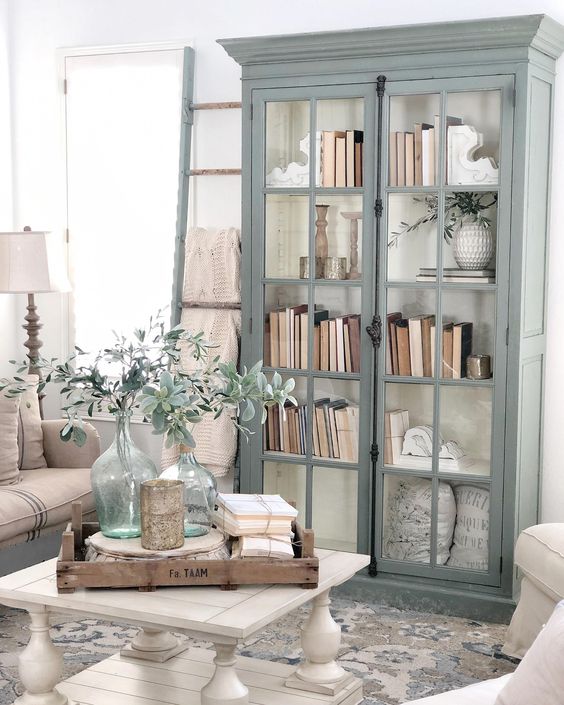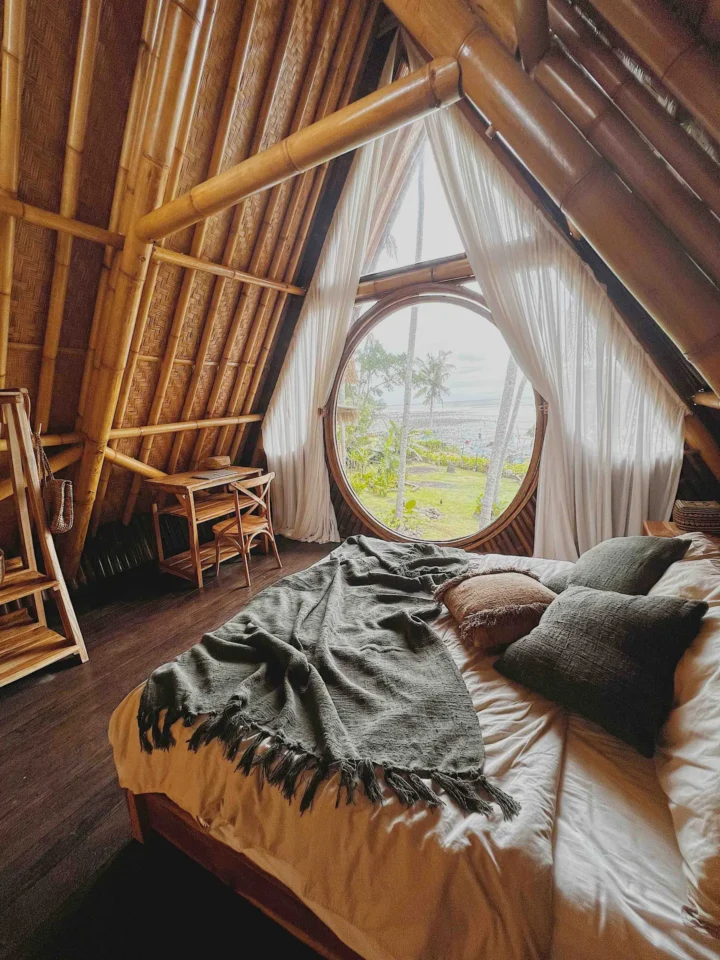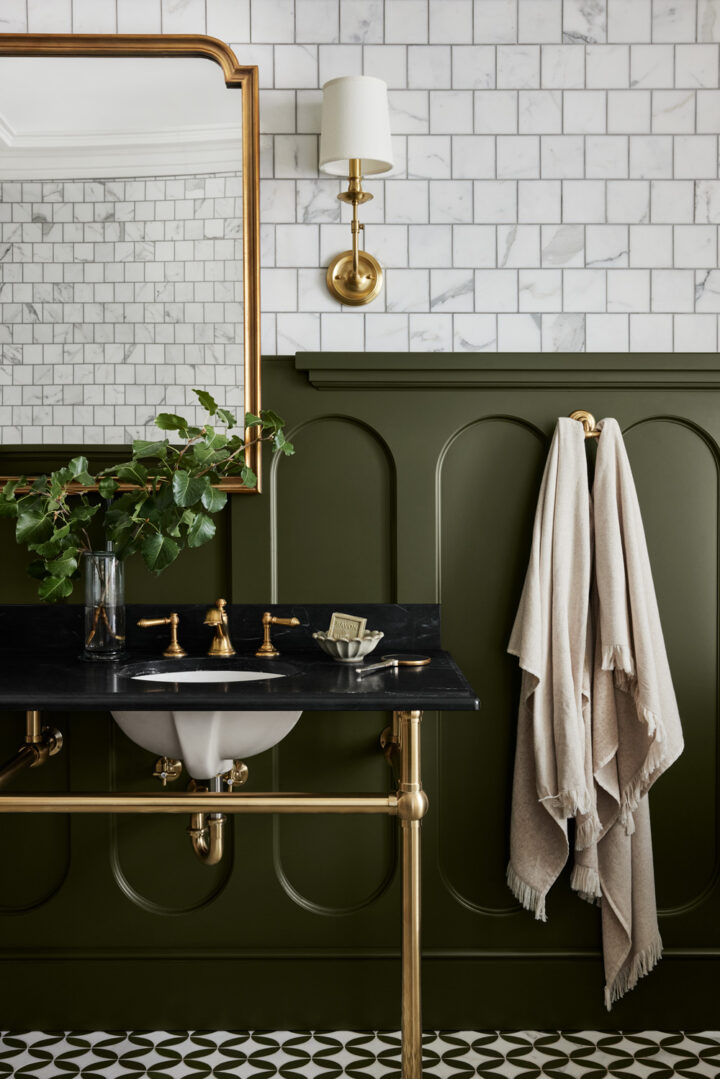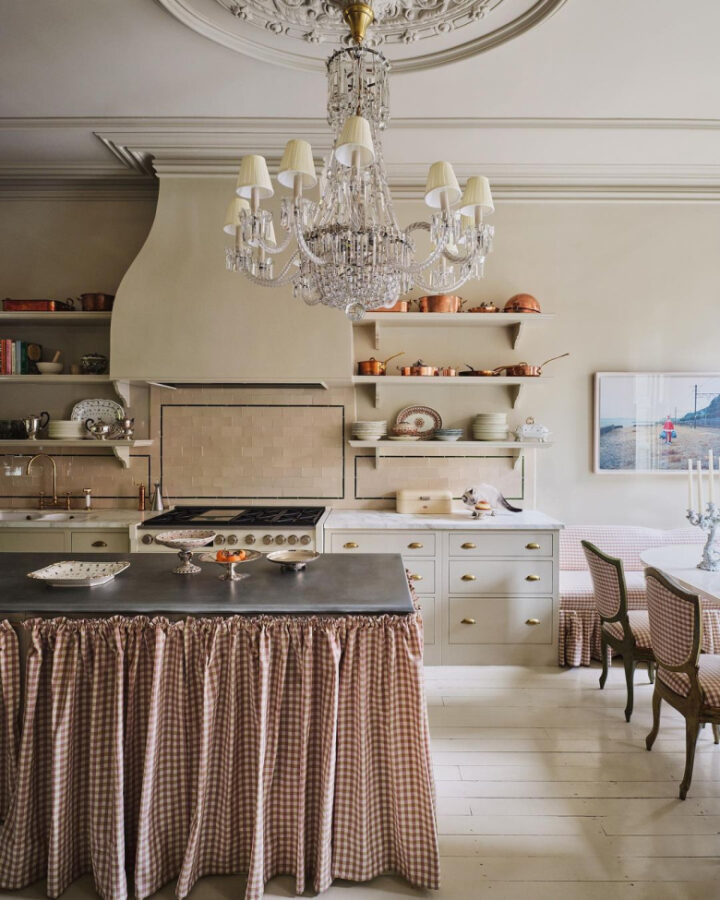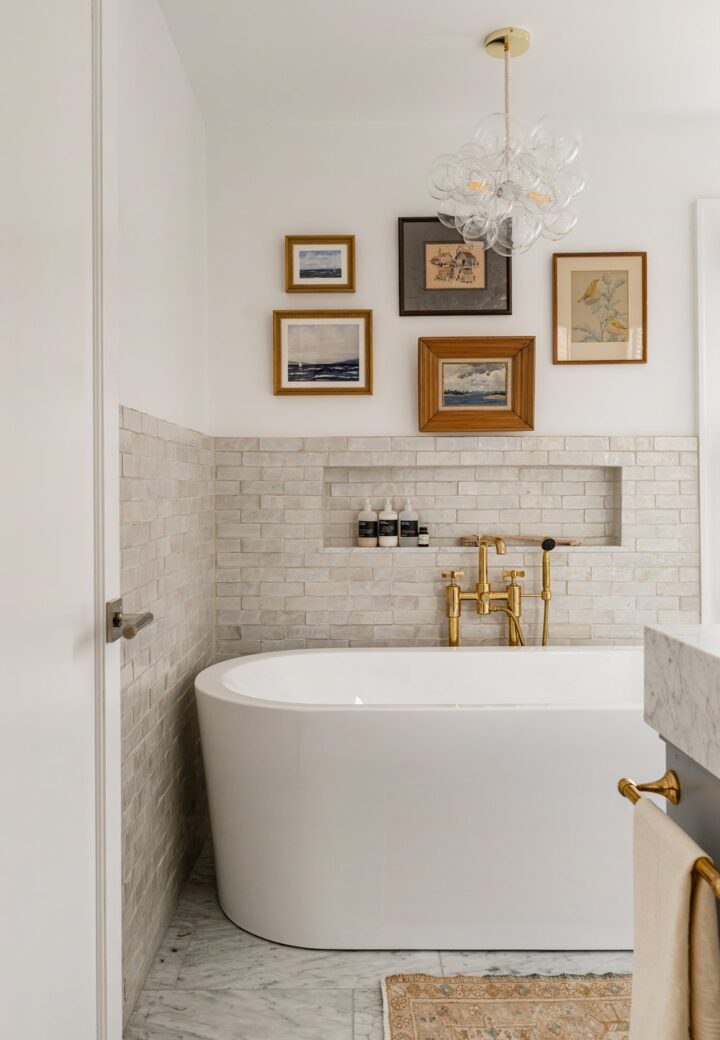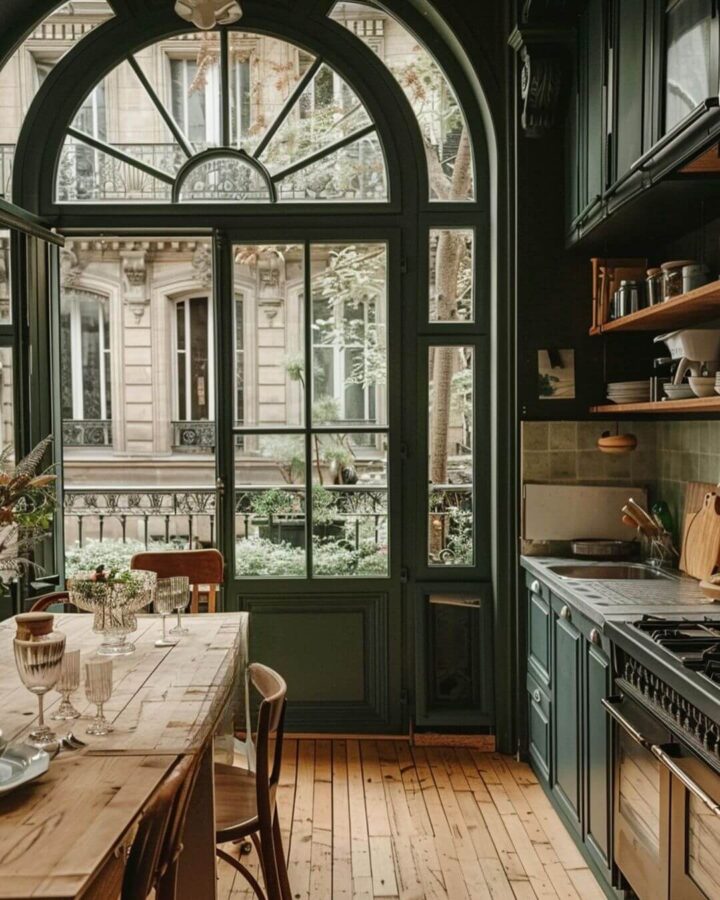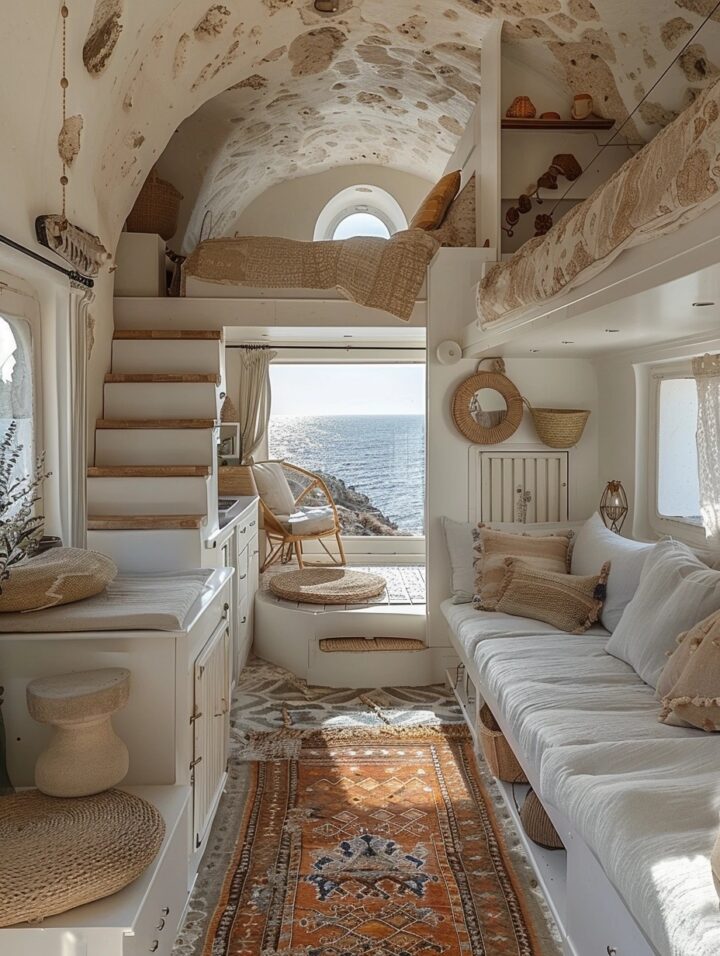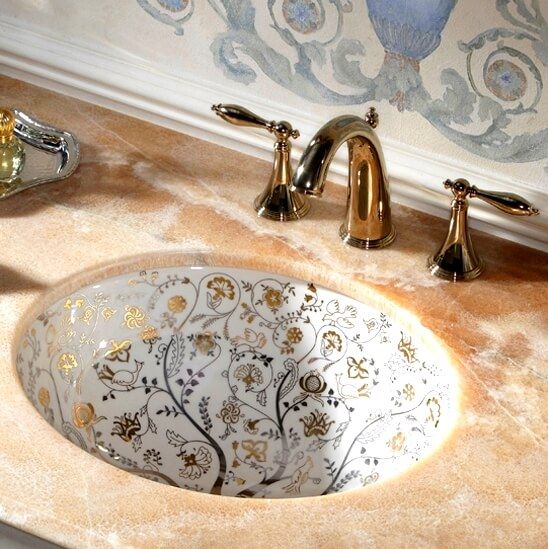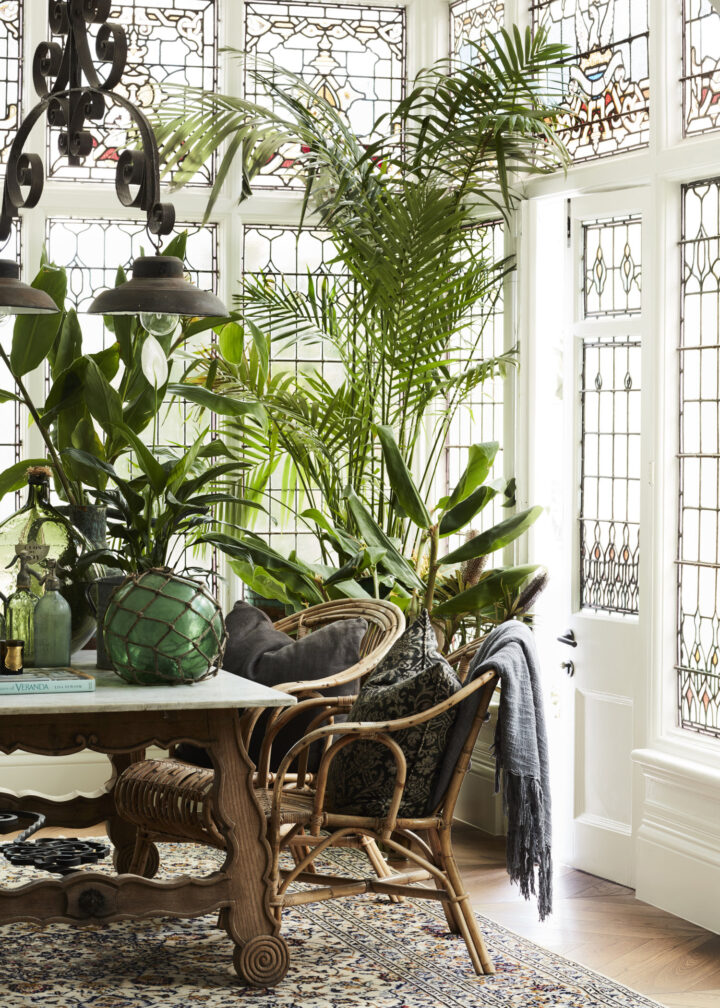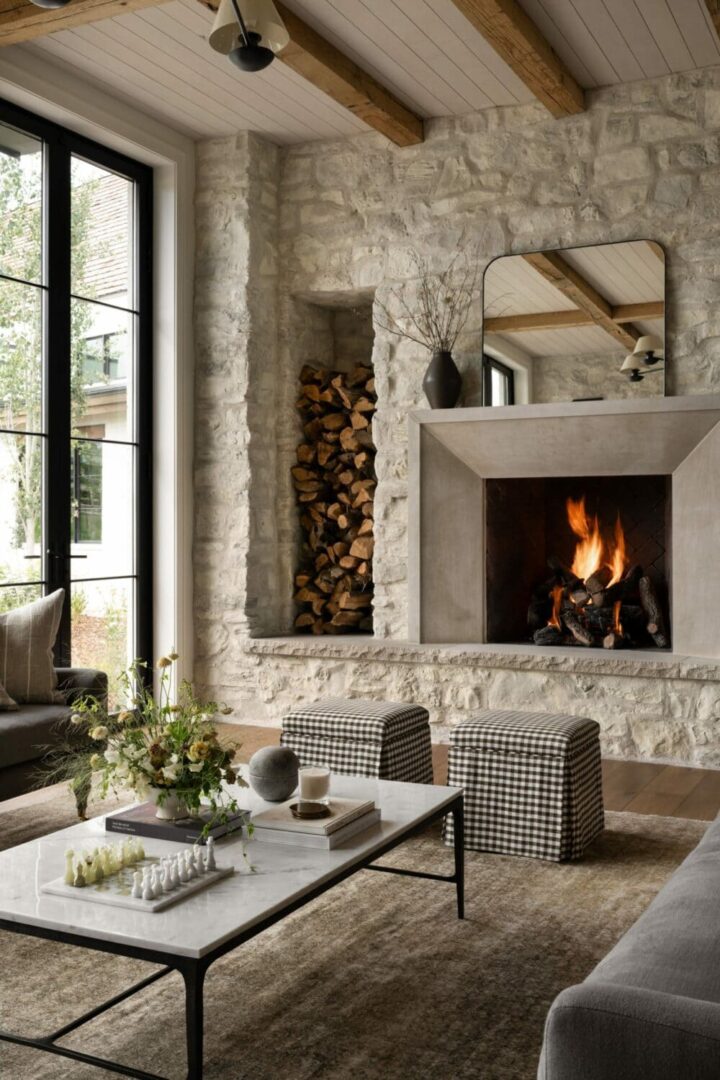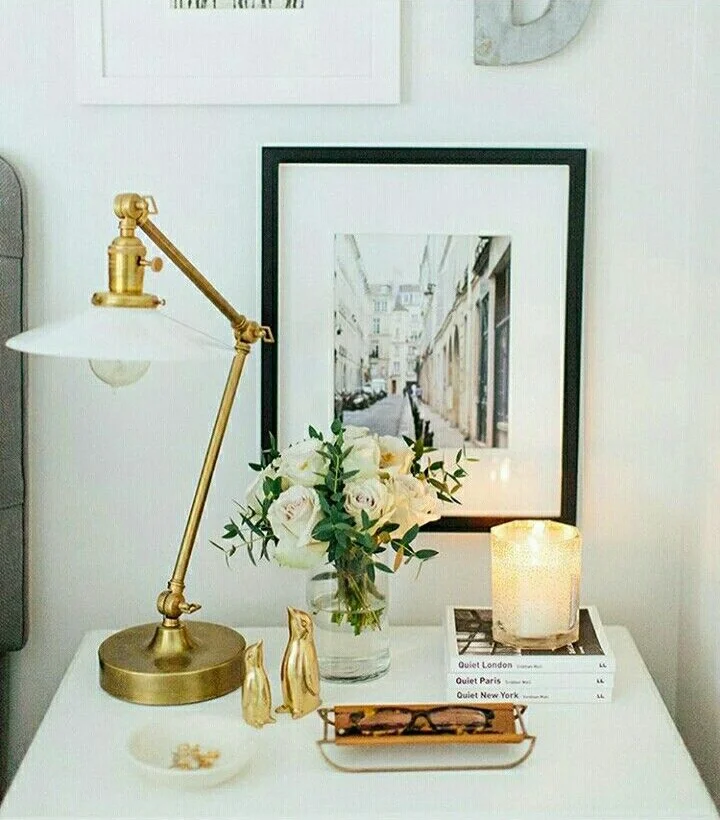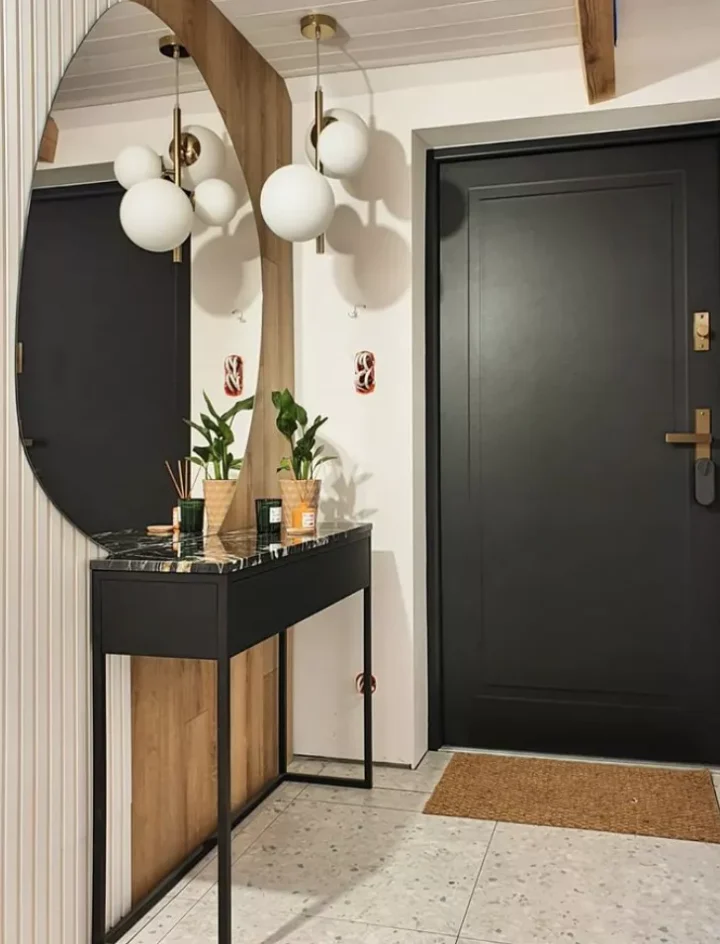In Classical Feng Shui, the arrangement and design of your home play a crucial role in creating a harmonious and balanced living space. Expert practitioners of this ancient art utilize various techniques, including the analysis of magnetic compass directions, to assess the flow of energy, known as qi, and its impact on the inhabitants. By understanding the facing direction of your home, you can harness the favorable energy and optimize your living environment. In this comprehensive guide, we will explore the significance of facing directions and provide practical tips on how to design your home with the Feng Shui directions.
Understanding Facing Directions in Feng Shui
When Feng Shui originated in ancient times, observing the environment and its natural elements was paramount in determining the ideal location for settlement. The concepts of yin and yang, which represent the shady and sunny sides of a hill, respectively, were used to analyze the energy dynamics. Selecting a location that allowed easy access to energy, such as sunlight, was considered favorable in Feng Shui practice.
The facing direction of a home refers to the magnetic compass direction it faces. Practitioners use this information, whether based on the location of the front door, the flow of qi, or other factors, to assess how the life force energy interacts with the property. By evaluating the facing direction, a Feng Shui practitioner gains insights into the behavior of qi within the home. They can then provide guidance on how to align the energy of the space with the needs and aspirations of the inhabitants.
Utilizing the Luo Pan for Precise Analysis
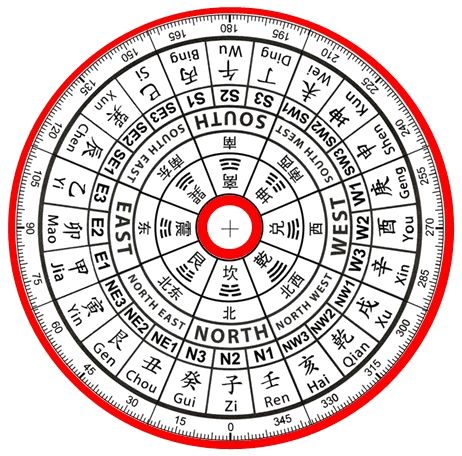
Image: Feng Shui
To accurately determine the facing direction of your home, Feng Shui practitioners employ a tool called the luo pan, also known as the Feng Shui compass. The luo pan allows for detailed readings and helps in fine-tuning the analysis of your home’s Feng Shui. By utilizing this precise magnetic compass, practitioners can gain a deeper understanding of the energy dynamics within your living space.
Jillian Rothchild-Scholar of Feng Shui In Motion, an expert in Classical Feng Shui, explains that the luo pan provides valuable information that, when combined with your birth information and other insights, enables practitioners to align your qi with the space. Additionally, factors such as the presence of an interior garage door or a bustling main street may influence the selection of the facing direction. In the case of apartments, the door to the unit becomes the primary reference point for determining the facing direction.
Factors Influencing Facing Direction Selection
While the front door is typically used to determine the facing direction of a home, there are other factors that practitioners consider to ensure accurate analysis. For instance, in cases where the home is oriented towards a focal point, such as a breathtaking scenic view, that may become the facing direction. The expertise of a Classical Feng Shui practitioner is invaluable in evaluating which facing direction(s) to use for your home. They may also consider multiple facing directions, depending on the specific circumstances and characteristics of your property.
Finding Your Home’s Facing Direction
Determining the facing direction of your home is a relatively straightforward process that requires a compass. While a specialized Feng Shui luo pan is commonly used, the compass on your smartphone can also serve the purpose. Begin by standing in your front doorway and looking outside. The direction you face, along with your home, is the facing direction. Use the pointer on the compass to identify the exact direction and the corresponding degrees.
To ensure accuracy, it is recommended to take multiple readings. Step back once into the house and then take another step before taking at least three readings. It is common to receive slightly different compass readings, so taking an average of these readings will provide a more reliable result. While this method provides a general understanding of your home’s facing direction, it is advisable to consult a Classical Feng Shui expert for an exact reading and comprehensive analysis.
Enhancing Your Home’s Design with Feng Shui Directions
Now that you have determined the facing direction of your home, you can leverage this knowledge to design a living space that promotes positive energy flow. Incorporating Feng Shui principles into your home’s design can have a significant impact on your overall well-being and create a harmonious environment. Here are some key tips to enhance your home’s design with Feng Shui directions:
1. Entrance Placement
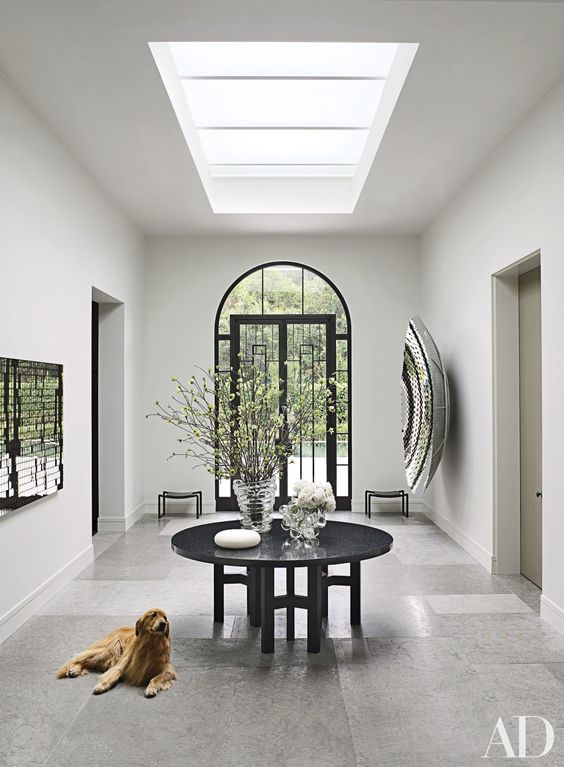
Image: AD
The entrance of your home plays a crucial role in attracting positive energy. Aligning the front door with the facing direction enhances the flow of qi into your home. Additionally, ensure that the entrance is well-lit and clutter-free to create a welcoming and vibrant space.
RELATED: This Is How to Feng Shui Your Entryway Table
2. Color Palette
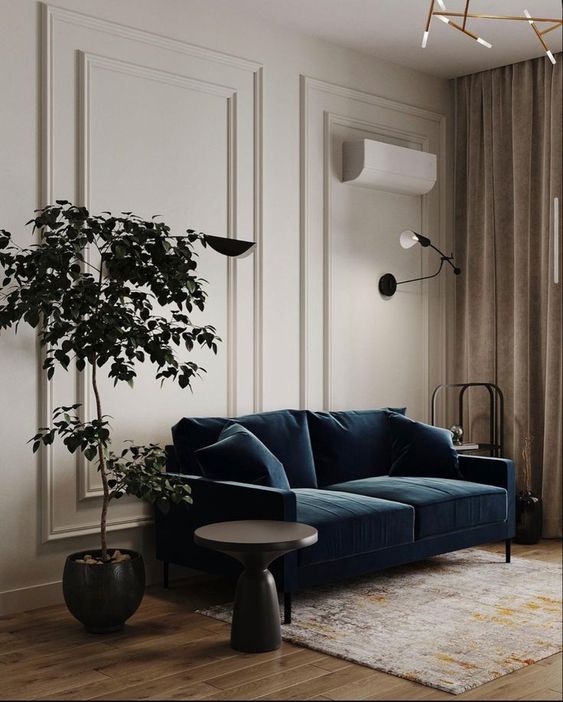
Colors have a profound effect on our emotions and energy levels. To harmonize your living space, select colors that correspond to the specific Feng Shui direction of your home. For example, if your home faces north, consider incorporating shades of blues and blacks. Each direction has its own color associations, and a Feng Shui expert can guide you in selecting the most suitable palette for your home.
3. Furniture Placement
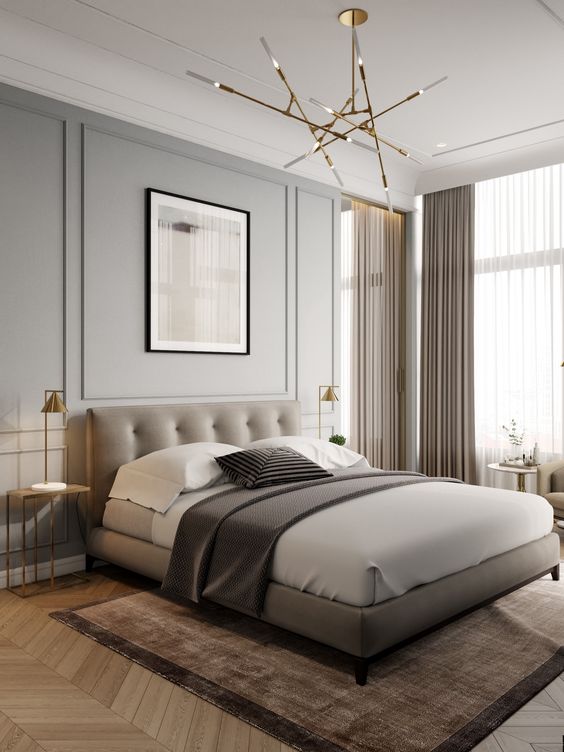
Image: Dmitry Dunaev
The arrangement of furniture within your home can influence the flow of energy. Position key furniture pieces, such as beds and desks, in alignment with the facing direction to optimize the qi flow. Avoid placing furniture in direct line with the entrance, as it may obstruct the energy flow and create a stagnant environment.
4. Natural Elements
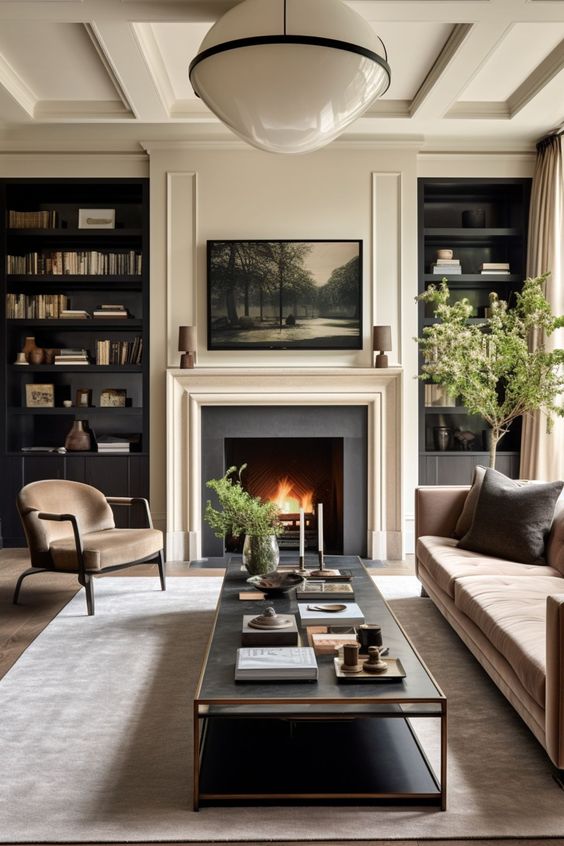
Integrating natural elements into your home’s design enhances the balance and positive energy. Consider incorporating plants, natural materials, and artwork depicting natural landscapes. These elements not only add aesthetic appeal but also connect your living space with the healing and revitalizing energy of nature.
5. Lighting
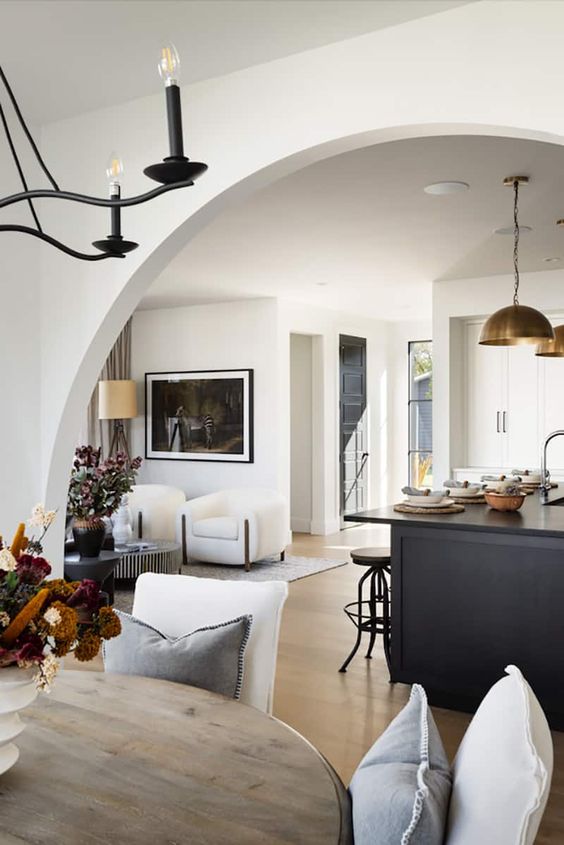
Image: Trickle Creek Designer Homes
Proper lighting is essential in creating a harmonious and uplifting atmosphere. Use a combination of natural and artificial light sources to illuminate your home. Pay attention to the specific areas in need of additional lighting, such as dark corners or hallways. Well-lit spaces promote a vibrant energy flow and contribute to a positive ambiance.
6. Decluttering and Organization
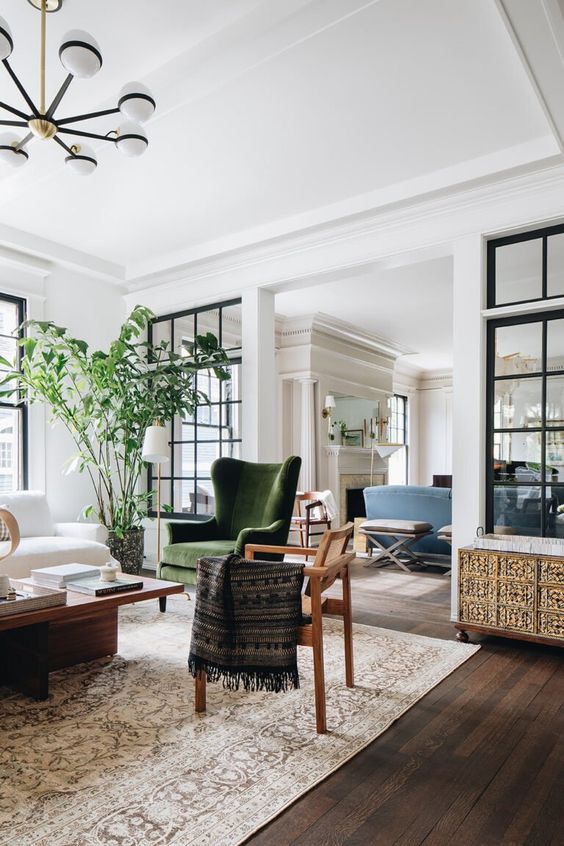
Image: jean stoffer design / Photography: stoffer photography interiors
A cluttered and disorganized home can hinder the smooth flow of energy. Regularly declutter your living space and create an organized environment. Remove unnecessary items, organize storage areas, and keep surfaces clean and clear. This allows the qi to circulate freely, creating a sense of calm and clarity.
7. Mirrors and Reflections
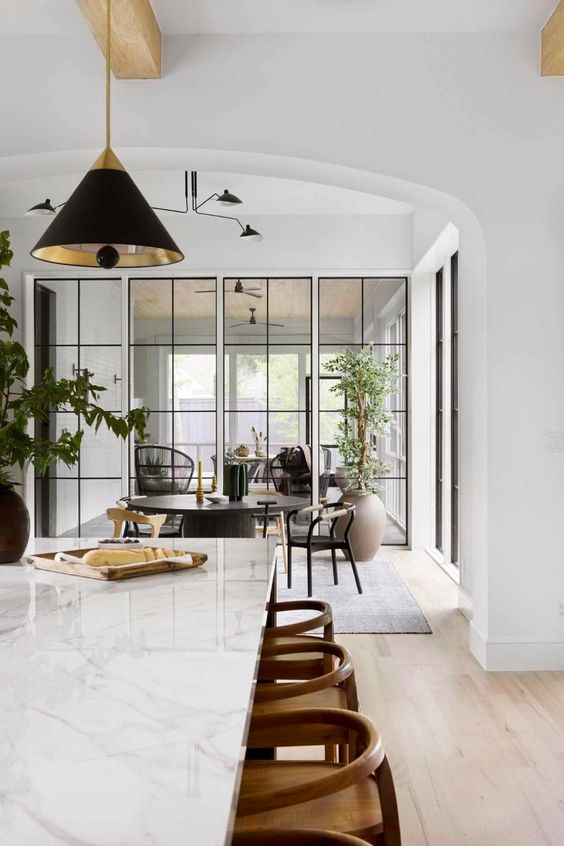
Image: Urbanology Designs
Mirrors have the power to expand and reflect energy within a space. Strategically placing mirrors can amplify the positive qi and create a sense of spaciousness. However, be mindful of their placement. Avoid positioning mirrors directly facing the entrance or reflecting negative elements, such as clutter or sharp corners.
8. Balancing the Elements
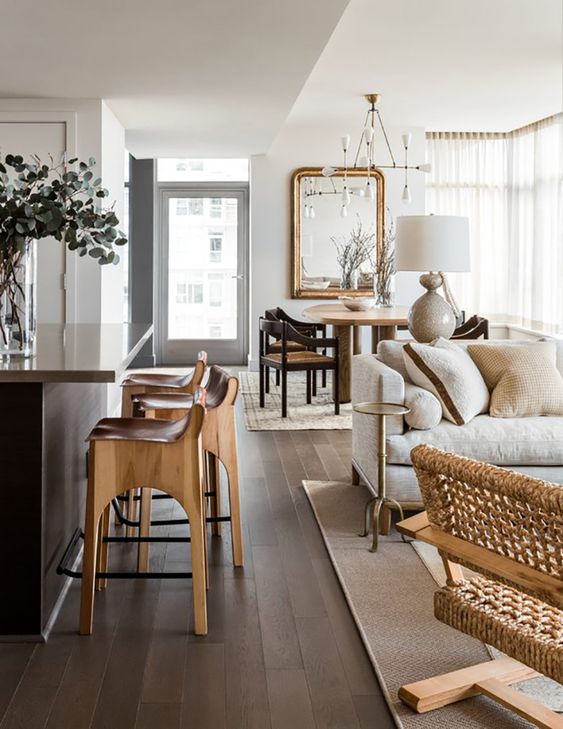
Image: Brian Paquette Interiors
Feng Shui is based on the principle of balancing the five elements: wood, fire, earth, metal, and water. Each direction corresponds to a specific element, and incorporating these elements in appropriate proportions creates a harmonious environment. For example, if your home faces east (corresponding to wood), consider adding wooden furniture or decorative items to enhance the element’s presence.
9. Personalized Feng Shui Remedies
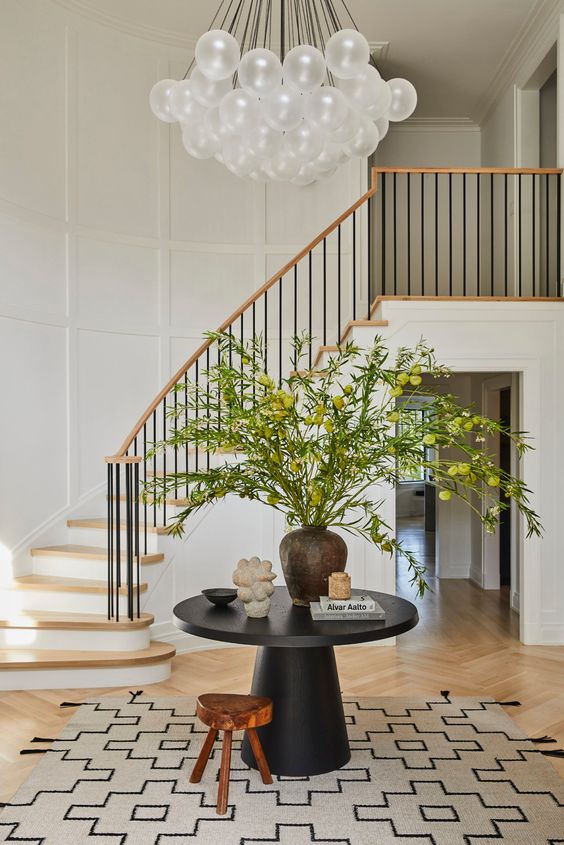
Image: MONICA FRIED DESIGN
Consulting with a Classical Feng Shui expert allows for personalized analysis and recommendations. They may suggest specific Feng Shui remedies to address any imbalances or challenges within your home. These remedies can include the placement of specific objects, the use of colors, or adjusting the flow of energy through various techniques.
10. Regular Evaluation and Adjustments
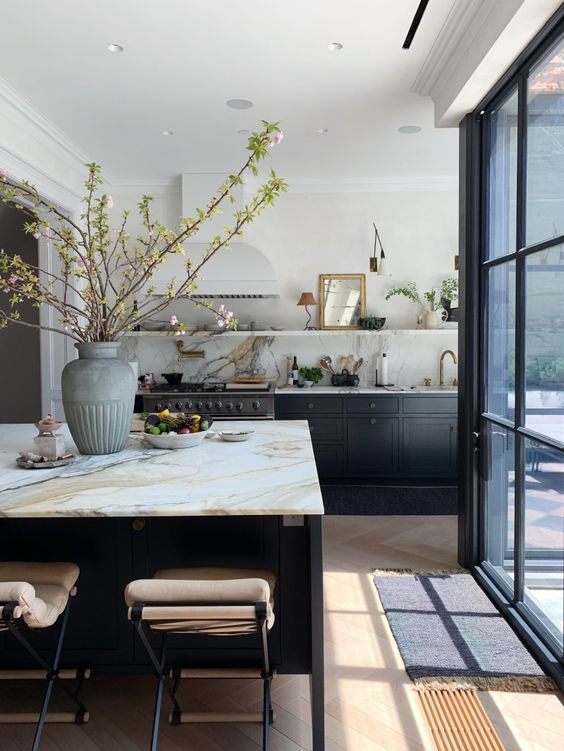
Image: Eyeswoon
Feng Shui is not a static practice but requires regular evaluation and adjustments. As your circumstances change, periodic reassessment of your home’s design and energy flow is essential. Stay attuned to the energy within your living space and make necessary adjustments to maintain a harmonious environment.
RELATED:
Conclusion
Designing your home with the Feng Shui directions is an artful and purposeful endeavor. By understanding the facing direction of your home and incorporating Feng Shui principles into your design, you can create a space that supports your well-being, promotes positive energy flow, and aligns with your intentions. Whether you choose to apply the tips mentioned or seek guidance from a Classical Feng Shui expert, the journey toward a harmonious living space begins with the awareness of the profound influence of the facing direction and the conscious design choices you make. Embrace the wisdom of Feng Shui and unlock the potential for a balanced and harmonious home.

